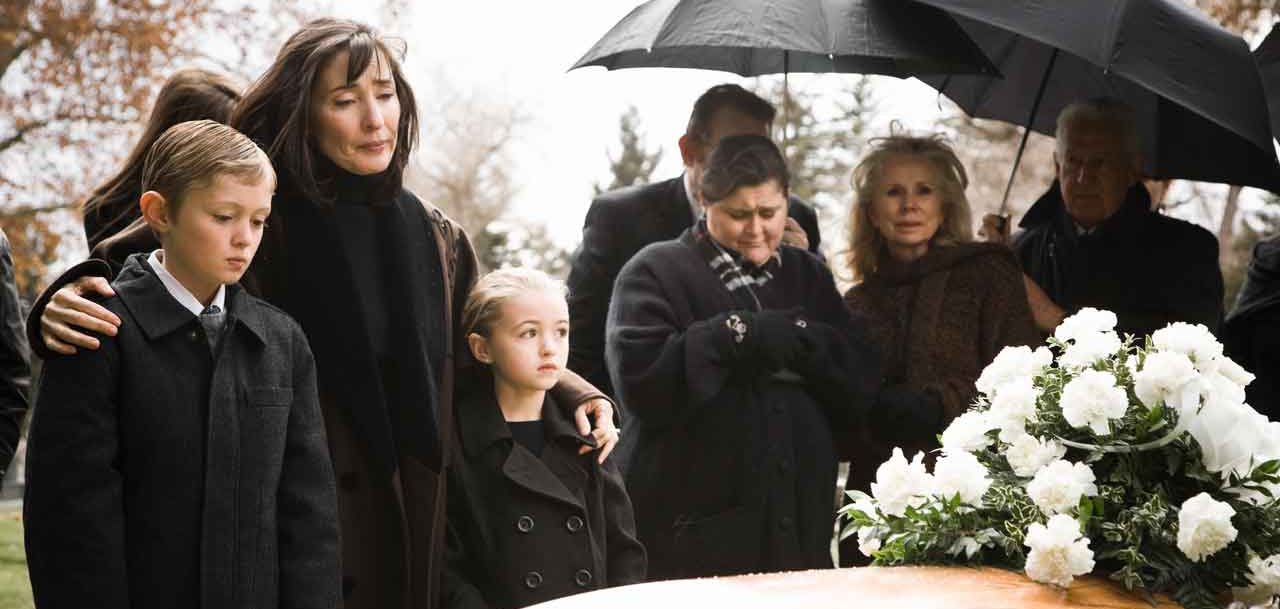Talking to Children About Death

For young children, who lack the life experience to understand changes, death can be confusing. Here are compassionate ways to talk to children about death.
When a close family member or friend dies, children show their grief in different ways. How they cope depends on their age, how close they were to the person who died, and how much support you give them.
Death is a new experience for young children, one that can be frightening and confusing. Unlike adults, children do not have the life experience to understand the changes death brings. Children do not know what to expect from the death of a family member or close friend, and without support, many children are unable to verbalize their feelings. Like adults, however, children grieve when they suffer a profound loss. They must be allowed to work through the grieving process (denial, anger, bargaining, depression, and acceptance) to move on with emotionally healthy lives.
YOU MIGHT ALSO LIKE: When to Take Your Child to the ER
Because the grieving process is complex and involves a variety of feelings, many people have defined the different stages in a number of ways. Each person progresses through these stages at his own pace and should not be rushed. The length of time each stage takes depends on the personality of the individual, the type of death experienced, the relationship to the deceased person, and the amount of support available.
The different stages of grief
- Shock and denial. At this stage many people feel numb and think, “This can’t be happening to me.”
- Anger. During this stage, many people ask, “Why me?” Anger is often displaced towards parents, classmates, siblings, and friends.
- Bargaining. During this stage the focus is often, “What can I do to change what happened?” For example, a child may wonder, “What if I had been nicer/braver/more helpful?”
- Depression. When the reality of death hits, depression occurs, along with feelings of sadness and despair.
- Acceptance. In this final stage, death is accepted, and the child moves on toward long-term recovery.
Talking to your children about death
As a parent, you can help your child through the stages of grief by making your home a place where your child can talk freely about loss. Be open to answering questions. Allow your child to cry. Don’t be afraid to admit you don’t have all the answers.
Never equate death with sleep because many children will be afraid to go to sleep. Some children feel abandoned. Talk to your child about any guilt he may have because the person who died left.
If you’re having trouble talking to your children about death, talk to your doctor and get recommendations for a good therapist. Your child may benefit from seeing a psychologist, social worker, or grief counselor.
Also, talk to your child’s teachers. Your child may become withdrawn or act out in school. Let your child’s teachers know about the death. They may be able to help, too.
Know that your child’s age plays a role in how much they understand. The following can help when talking to your child about death:
- Ages 4 to 6. Most children at this age live in the present. They see death as a temporary separation. A 5-year-old doesn’t understand why a friend who died yesterday isn’t here today. Many children this age believe death is reversible. When this happens, state the fact of death without using any euphemisms. Use direct language, including the words “dead” and “death,” and keep explanations short. Try to bring fears and worries to the surface. Correct any misperceptions, and constantly reassure children with words and hugs that they are loved. One of the best examples of this is to watch the Sesame Street clip of Big Bird learning about death.
- Ages 7 to 8. At this age, children have a clearer understanding of death. They begin to fear death and believe that they too can die. They realize that death is final. You need to be responsive to children’s needs without judgment. Let your children talk about death and about the person he misses. You can also have your child draw or write out his feelings.
- Ages 9 to 12. This age group has a more realistic view of death. They may ask you why the person close to them died. Give your child permission to vent his feelings. Listen and give thoughtful answers to his questions.
- Ages 13 to 15. Teenagers think abstractly and can understand the implications of death. When talking to your teenager, be open and honest.
Talking to children about death doesn’t have to be difficult. In all cases, it’s essential to be honest and show your child that he is loved.
YOU MIGHT ALSO LIKE: 10 Things You Should Never Say to a Special Needs Parent
Updated:
February 27, 2020
Reviewed By:
Janet O’Dell, RN